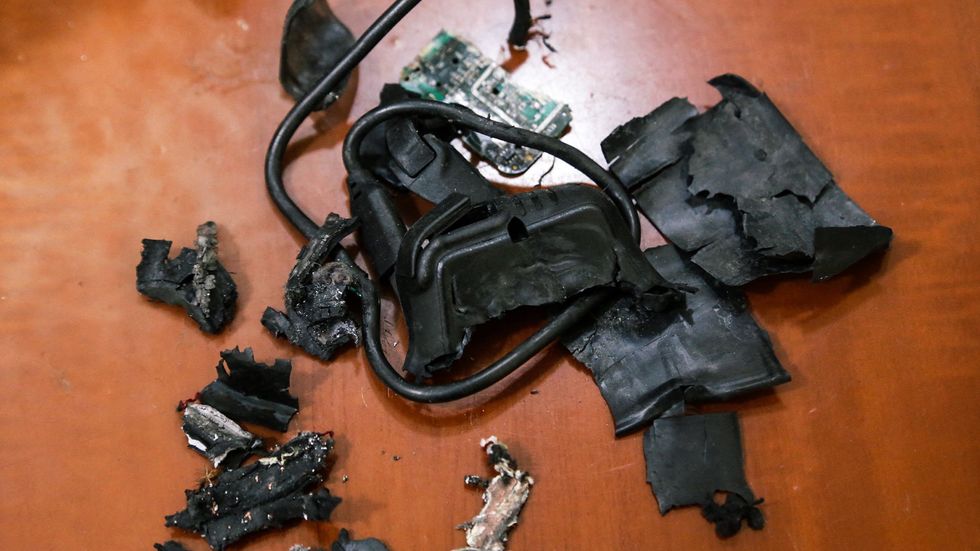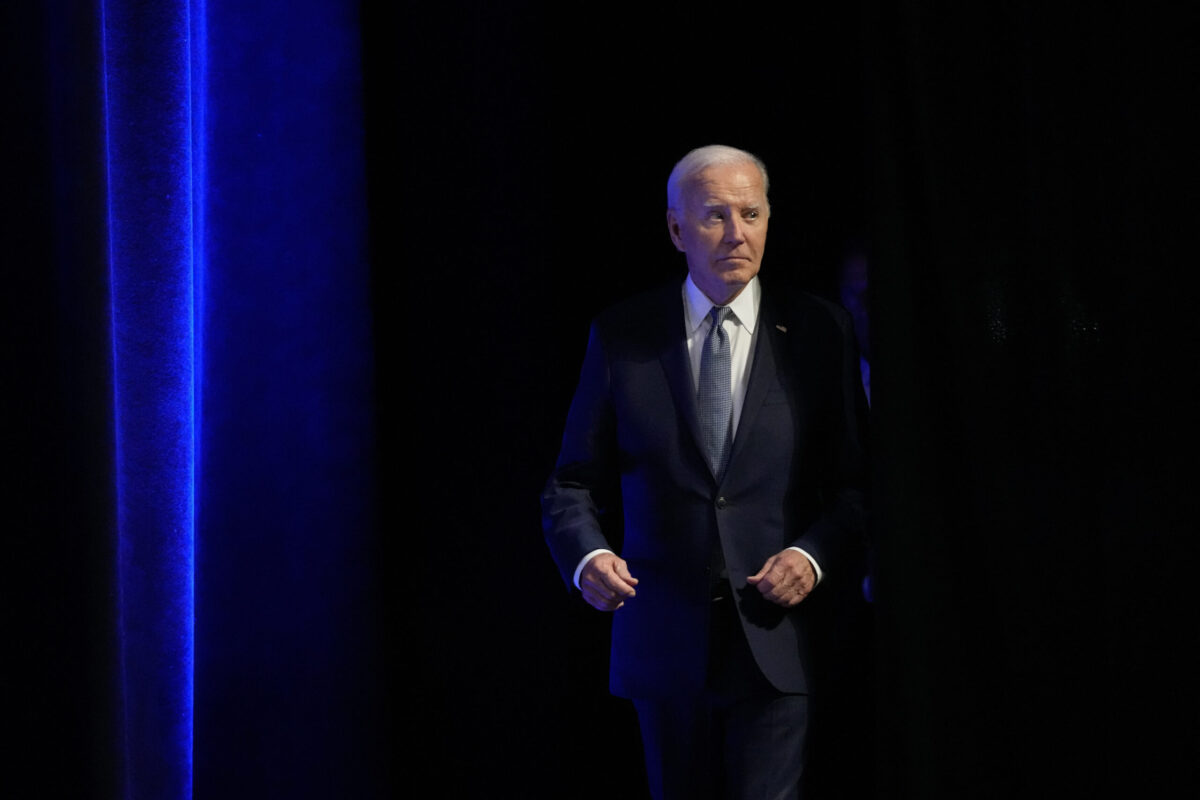When China conquers Taiwan, it'll have a near monopoly on the chips powering every gadget we own
There’s no sugarcoating this, so I’ll give it to you straight. We don’t have a competitive domestic computer-chip industry, and we won’t have it in the next 10 years. China will take Taiwan and control TSMC (Taiwan Semiconductor Manufacturing Company — the first dedicated chip foundry in the world and the most important). And the U.S. will keep buying chips from TSMC with CCP back doors in them — and pretend it’s fine. That’s the depressing reality of Intel’s failure to provide an alternative to TSMC. The idea that we’re going to just man up and re-shore leading-edge chipmaking is now clearly a fairy tale. But it’s not just Intel’s fault. The problems that got us here are all part of the larger off-shoring of U.S. manufacturing over the last 30 years, and they won’t be solved by propping up Intel with a few tariffs and a couple of billion dollars. When we knuckle under and help China keep the lights on at TSMC, maybe with some face-saving rhetoric, it will continue the last 30 years of optimizing for cheap goods at the expense of national sovereignty. It's the continuity-preserving path. Amid this disaster, we need a complete and total reboot of all U.S. industrial policy, with chip-making as one part of that bigger effort. But even if we can get it together to begin this, the path to pulling it off goes through a long period of time when China’s Communist Party has root access to our domestic systems and steals or sabotages our stuff. At least China doesn’t want to completely wreck us because it needs someone big enough to buy a lot of its stuff. The U.S. has to remain functional enough to support Beijing’s continued rise to world dominance, and, of course, we do supply some of the critical inputs to leading-edge chip fabs that it'll need to run TSMC. So keeping us alive in second or third place globally is a win for them — and us. And because there’s no alternative, we will accept that. We can’t very well take Apple, Google, NVIDIA, etc. out behind the barn and shoot them. We’ll keep buying TSMC output and pretending it’s all A-OK. We’ll make it through the digital revolution as a country, but we’ll get taken down a peg (or two ... or three). Yes, we should’ve thought about this back when we had a choice. Forget about chips — we should never have given the Chinese our factories! The whole industrial policy was so obviously, monumentally stupid. But here we are, so we’ll muddle through. Now, some insist that we can slip the noose because of TSMC’s big, high-profile expansion plant in Arizona. Unfortunately, the Arizona fab was always going to be trailing-edge, negligible in terms of impact on our domestic chip issues. How could it be otherwise? Why on earth would TSMC do anything material to lessen our dependence on it? LOL. Furthermore, if TSMC is already low-key CCP-captured — a development thought likely in some circles in D.C. and Silicon Valley — then China itself would just be giving up its eventual leverage over us by lessening our dependence on TSMC. And if not, there's still no way Taiwan would want us to be less likely to come to its aid when China moves on it. No matter how you look at it, TSMC’s Arizona fab was always whatever the industrial policy equivalent of security theater is. It was maybe a nice idea if we could've executed on it, but it was never a real plan to save us from being dependent on China for our transistor supply. And so, this Intel catastrophe is very, very bad, and there's no real light at the end of this tunnel that isn't an oncoming train. There's no quick fix or way to just throw a few (borrowed) billions at this issue and really make a material difference in a short time. That's all fantasy. We have to find the will to re-industrialize, and we're going to have to do it in a world where China is basically more advanced than we are. We're very fortunate that China has its own massive problems — its own set of dominoes falling from decades of bad decisions. It's good to be bullish on America, but we're going to have to be bullish on ourselves as the underdog. We're going to have a long journey of coming back from behind. If you don't see it yet, you'll get it eventually. Better start now. A bitter pill to swallow A lot of replies to my recent Intel/TSMC thread are of the nature of, "We will surely blow up the fabrication facility if China invades," or, "Why would we not blow up the fab?" etc. Taiwan Semiconductor Manufacturing Company getting wrecked is the scenario I outlined in this article from a few years ago, and it's what I obliquely refer to when I say the U.S. will not take NVIDIA, Apple, Google, etc. out behind the barn and shoot them. Our whole tech sector would be massively damaged, some parts of it maybe fatally, by the direct and indirect impact of the sudden loss of TSMC. From my previous article, there are a few important details about the semiconductor business you have to keep in mind going forward: "The market for advanc


There’s no sugarcoating this, so I’ll give it to you straight. We don’t have a competitive domestic computer-chip industry, and we won’t have it in the next 10 years. China will take Taiwan and control TSMC (Taiwan Semiconductor Manufacturing Company — the first dedicated chip foundry in the world and the most important). And the U.S. will keep buying chips from TSMC with CCP back doors in them — and pretend it’s fine.
That’s the depressing reality of Intel’s failure to provide an alternative to TSMC. The idea that we’re going to just man up and re-shore leading-edge chipmaking is now clearly a fairy tale. But it’s not just Intel’s fault. The problems that got us here are all part of the larger off-shoring of U.S. manufacturing over the last 30 years, and they won’t be solved by propping up Intel with a few tariffs and a couple of billion dollars.
When we knuckle under and help China keep the lights on at TSMC, maybe with some face-saving rhetoric, it will continue the last 30 years of optimizing for cheap goods at the expense of national sovereignty. It's the continuity-preserving path.
Amid this disaster, we need a complete and total reboot of all U.S. industrial policy, with chip-making as one part of that bigger effort. But even if we can get it together to begin this, the path to pulling it off goes through a long period of time when China’s Communist Party has root access to our domestic systems and steals or sabotages our stuff.
At least China doesn’t want to completely wreck us because it needs someone big enough to buy a lot of its stuff. The U.S. has to remain functional enough to support Beijing’s continued rise to world dominance, and, of course, we do supply some of the critical inputs to leading-edge chip fabs that it'll need to run TSMC. So keeping us alive in second or third place globally is a win for them — and us.
And because there’s no alternative, we will accept that. We can’t very well take Apple, Google, NVIDIA, etc. out behind the barn and shoot them. We’ll keep buying TSMC output and pretending it’s all A-OK. We’ll make it through the digital revolution as a country, but we’ll get taken down a peg (or two ... or three).
Yes, we should’ve thought about this back when we had a choice. Forget about chips — we should never have given the Chinese our factories! The whole industrial policy was so obviously, monumentally stupid. But here we are, so we’ll muddle through.
Now, some insist that we can slip the noose because of TSMC’s big, high-profile expansion plant in Arizona. Unfortunately, the Arizona fab was always going to be trailing-edge, negligible in terms of impact on our domestic chip issues. How could it be otherwise? Why on earth would TSMC do anything material to lessen our dependence on it? LOL.
Furthermore, if TSMC is already low-key CCP-captured — a development thought likely in some circles in D.C. and Silicon Valley — then China itself would just be giving up its eventual leverage over us by lessening our dependence on TSMC. And if not, there's still no way Taiwan would want us to be less likely to come to its aid when China moves on it.
No matter how you look at it, TSMC’s Arizona fab was always whatever the industrial policy equivalent of security theater is. It was maybe a nice idea if we could've executed on it, but it was never a real plan to save us from being dependent on China for our transistor supply.
And so, this Intel catastrophe is very, very bad, and there's no real light at the end of this tunnel that isn't an oncoming train. There's no quick fix or way to just throw a few (borrowed) billions at this issue and really make a material difference in a short time. That's all fantasy.
We have to find the will to re-industrialize, and we're going to have to do it in a world where China is basically more advanced than we are. We're very fortunate that China has its own massive problems — its own set of dominoes falling from decades of bad decisions. It's good to be bullish on America, but we're going to have to be bullish on ourselves as the underdog.
We're going to have a long journey of coming back from behind. If you don't see it yet, you'll get it eventually. Better start now.
A bitter pill to swallow
A lot of replies to my recent Intel/TSMC thread are of the nature of, "We will surely blow up the fabrication facility if China invades," or, "Why would we not blow up the fab?" etc. Taiwan Semiconductor Manufacturing Company getting wrecked is the scenario I outlined in this article from a few years ago, and it's what I obliquely refer to when I say the U.S. will not take NVIDIA, Apple, Google, etc. out behind the barn and shoot them. Our whole tech sector would be massively damaged, some parts of it maybe fatally, by the direct and indirect impact of the sudden loss of TSMC.
From my previous article, there are a few important details about the semiconductor business you have to keep in mind going forward:
"The market for advanced microchips fits together like this:
- The equipment and tooling for making leading-edge chip fabrication plants comes from the US and Europe.
- The two leading-edge fab makers, who have the proprietary know-how to turn that equipment and tooling into fabs that turn out chips more advanced than anyone else’s, are in Taiwan’s TSMC and South Korea’s Samsung. (There are actually sort of two-and-a-half leading-edge fab makers, with Intel being the half. It has stumbled but will recover and join the other two, soon.)
- The customers for the outputs of those leading-edge fabs are global, including in the US and Europe.
- Porting a chip design from one company’s fab process to another is costly and painful. It’s not like you send an email with some files to a different address and a few days later identical chips come off a new production line in a different factory. No, customers are tied to specific companies’ fabs, and suddenly losing access to that fab means suddenly no more chips until you complete a lengthy, costly re-targeting process.”
If TSMC suddenly goes dark, what happened to Intel's share price the other day will happen to the rest of the NASDAQ — instant, massive carnage. Imagine Apple can't release new iPhones for some indefinite number of years and can't say when it'll be able to.
I simply don't think we're going to do this to our tech sector. Instead, we'll keep TSMC running under CCP control if that's at all an option that's on the table post-invasion. And I suspect it will be, because I think TSMC is already likely de facto under CCP control.
There have been many similar replies to the effect that the U.S. won’t “lose” TSMC. I can't imagine being this confident that the U.S. will suddenly put some great power rivalry with China ahead of its own naked commercial interests like this, after decades of us doing the exact opposite (which is why we're in this bind!).
Imagine a country that sent all its manufacturing overseas to save money suddenly being willing to slaughter most of the NASDAQ in the name of sticking it to China because, hey, it's a rival, and you can't trust those guys! Sorry, I'm not seeing it.
When we knuckle under and help China keep the lights on at TSMC, maybe with some face-saving rhetoric, it will continue the last 30 years of optimizing for cheap goods at the expense of national sovereignty. It's the continuity-preserving path.
Originally Published at Daily Wire, World Net Daily, or The Blaze
What's Your Reaction?
































































































